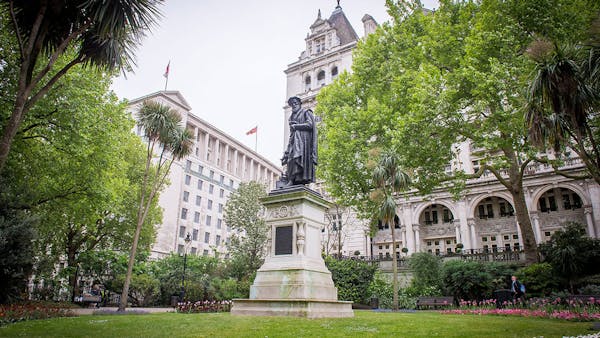Next, we turn our eyes to Denmark and to the man who earned himself the title “reformer of Denmark”, Hans Taussen. Taussen was born in 1494 to Danish peasants whose meager income did not provide Taussen with the opportunity of receiving the kind of education he longed for. His family being Catholic he soon joined the ranks of a monastic order where the diligence with which he executed his tasks caught the attention of the head of the order who offered him a scholarship to any University of his choosing, except the poisoned Protestant stronghold of Wittenberg.
He chose Cologne and while he was there he was given the writings of Luther which sparked a fire in his bones, leading him to leave Cologne for Wittenberg without alerting his benefactors to the change. Around 1523 Taussen returned to Denmark, receiving a doctorate in Divinity shortly after. This opened the door for him to teach others the truths that he had learned at Wittenberg. He went back to the monastery that had offered him the scholarship and he began to quietly teach the Reformed faith to the students there. Before long, however, the head of the order, who had provided him with the scholarship, realized what was happening and had Taussen locked up at the convent of Viborg and there, unable to contain himself, Tausan began to preach to the inmates of the convent through the bars of his prison cell. At this point, they expelled him from the monastic circle altogether and this gave him the freedom to travel throughout Denmark preaching and teaching wherever he went. Tausen translated the New Testament into Danish and was instrumental in leading the whole country to accept the reformed faith.
Looking at the stories of these men one thing that stands out is their commitment to taking the truths they had learned back to their native lands. Without this commitment, the truth of the gospel would not have entered Scandinavia. It would have been tempting for them to remain in Wittenberg, which was a hub of protestant action, hobnobbing with the brightest and best minds that the Reformation had to offer but they chose the road less travelled, choosing to go back to their home countries to continue the work alone and what an impact they made for God. While it is always more exciting to be where the action is to think about this; if everyone congregated where the action was what would happen to those places that were on the periphery? How would they head the truth? How would they be built up and flourish? It is important for us to willingly embrace the work that God has given us to do in the place he has asked us to do it regardless of how small they both may be. Remember that the smallest stone can make the most far-reaching ripples and embrace the day of small things.

